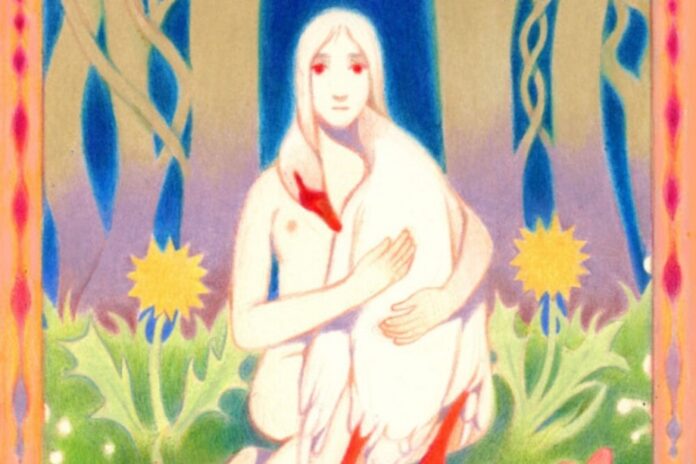“As I am finishing this book, I learn that a black hole has been spotted in a distant galaxy which, instead of swallowing up the stars, creates them”, explains Roxane Desjardins on the back cover of Trou noir, a work bathed in this blinding light, specific to a metamorphosis.
In January 2022, astrophysicist Amy Reines and her colleagues at Montana State University announced that they had discovered using the Hubble Space Telescope a black hole at the heart of the dwarf galaxy Henize 2-10. Unlike other black holes, this one did not engulf stars, but triggered their formation. A rich astral oxymoron by the yardstick of which the poems of Black Hole, the fourth book by Roxane Desjardins, could be scrutinized like so many smoldering debris of stars returning to dust.
“What I do with my soul, /my charms, my oaths, /it’s my business”, announces the rebellious voice, intimate with the mysteries of darkness, which is expressed in this work guided by a quest for equanimity and calm. The suppressed rage that animated Le revers (2018), the previous book by the director of Les Herbes rouges, now looks more like fatigue, because if anger is exhilarating, it is also exhausting. “If I have nothing to defend. /Is there something/behind/when the air/no longer oppresses me? »
Black Hole thus paints a kaleidoscope portrait of a woman who gropes her way through the ruins of herself, worried about what we sacrifice of ourselves when we step up to the plate – “I’m skillful / I don’t I know too much/my revolt is angry with me/for her I am only a crooked vehicle. — but also proud of her scars, through which glimpses of light appear.
Written simultaneously in I, you, he and we, these long logorrheic texts, the flow of which seems to try to stem the anguish, alternate between images of bewitching opacity and passages borrowed from the language of daily. Roxane Desjardins practices a poetry that is uncompromising in its formal requirements, but which increasingly allows itself self-mockery, gentleness and gratitude.
Trou noir perhaps describes above all a metamorphosis, not to say a moult, the death of something from which a new entity would emerge, relieved. “This book is not going to end,” we are promised, as a woman merges with some kind of primal water. But silence? No never. “I come to convince myself/that keeping quiet is a position/of strength. Then my stomach opens. There is little light so life-giving as that which follows suffering.















